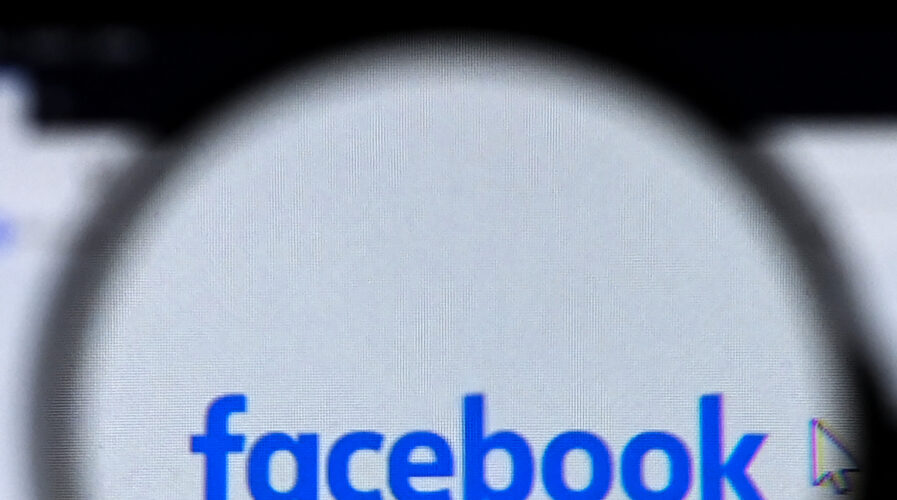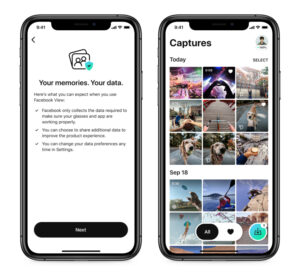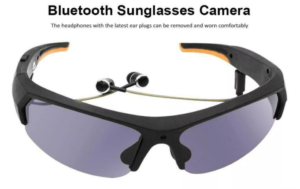
(Photo by Kirill KUDRYAVTSEV / AFP)
Facebook Smart Glasses – haute fashion statement or privacy infringement device?
When the Facebook smart glasses were announced in partnership with Ray-Ban, it drew mixed reactions from everyone. While some users were excited about this technology from the social media giant, digital privacy advocates feel such glasses may only infringe on other peoples’ privacy.
Called Ray-Ban Stories, the smart glasses will give users a new way to capture photos and videos as well as share their adventures, listen to music and take phone calls. Put it simply, it’s a wearable that will give you everything you need to keep you connected to your social life.
The thing is, the technologies that Facebook and Ray-Ban are using in their smart glasses are not entirely new. In fact, they have been around for at least a decade. Unlike the augmented reality glasses which are used in some industries, all smart glasses do is just keep you connected and provide you the ability to record whatever you see.
Facebook is working on augmented reality (AR) glasses as well. Project Aria is a new research project that will help Facebook Reality Labs build the first generation of wearable augmented reality devices. In Singapore, it was reported that Facebook plans to collect data needed to build its software and hardware by having its employees use them — with consent granted of course.
It started last year in August when the social networking company renamed its Oculus virtual reality and augmented reality division to Facebook Reality Labs – highlighting a greater focus on augmented reality applications going forward.

Source – Facebook
Recharging the smart glasses market
Facebook is not the first company to develop smart glasses — nor will it be the last. Just a couple of days after the launch of Ray-Ban Stories, China’s Xiaomi, too, launched their own smart glasses. However, unlike Ray-Ban Stories, Xiaomi’s device not only takes photos but can also display messages and translate text in real-time.
Apple has been rumored to be looking at releasing its version of smart glasses. But the rumors also say that it may not happen till the second half of 2022 or even 2023. Samsung is also rumored to develop its own smart glasses, implemented with augmented reality (AR) technology. It’s now only a question of when will these devices be launched and made available.
But how successful can the smart glasses market be? Despite reports showing that the market is poised to grow by US$69.1 million between now and 2025, with the biggest market being North America, the key driver for this is the adoption of AR in the glasses. The AR market is growing at a much faster pace compared to the smart glasses industry.
The reality is, companies like Google, Amazon, and Snapchat have all invested and release similar products. However, none have been as successful as they thought they would be. Both the Google Glass and Snap Spectacles were not able to penetrate the market as much as they wished they had.
Perhaps with Facebook, the tone might be a bit different, especially with the advancements in social media and the partnership with a renowned eyewear maker. And with Facebook actively advocating their Metaverse ecosystem, the glasses may just fit the bill.
A cheaper alternative to Facebook Smart Glasses
Costing US$299, the smart glasses will be available in selected retail stores in the US, Australia, Canada, Ireland, Italy, and the UK. There hasn’t been any update on when they will be available in Asia, but the thing is, will these smart glasses be successful here?

An example of a cheaper alternative. Source – Lazada
Asian manufacturers are known for their innovation. And it is not surprising that smart glasses like the one from Ray-Ban are already widely available online and in some gadget stores. Compared to a pair of Ray-Ban Stories, China-made smart glasses can be bought online for less than US$20.
These smart glasses may not carry the branding of Facebook and Ray-Ban but can provide users the same function. Available in a variety of shapes and sizes, these smart glasses can be connected to a mobile device via Bluetooth and snap high-resolution pictures and videos as well.
Everything is visible
Despite the affordability of smart glasses, it is not a product of high demand. And the reason for this is because of privacy. Using smart glasses to take pictures might be something new for Facebook, but it also raises serious privacy concerns.
Facebook has already been involved in some high-level breaches involving its users’ data. Previously, over half a billion Facebook users have had their data, including names, birth dates, and phone numbers have been leaked to a hacker website and it has been happening since 2019. Having been left unnoticed, experts claim the breach to be the biggest one yet by the social media giant.
In Italy, where the smart glasses will also be available, Garante, the Italian data protection authority has requested Facebook to provide it with clarifications related to the smart glasses. Garante would want to determine and guarantee that the product complies with the nation’s privacy laws.
According to Facebook, smart glasses are designed with privacy in mind. For example, a white LED light appears when the camera is operational and users are in control of data and content. However, users would only use sunglasses during a bright sunny day, unless they feel like wearing shades at night. So wouldn’t the light be not so visible, especially if pictures are being taken from afar?
Also, can Facebook assure that the smart glasses can’t be remotely accessed by cybercriminals? As a wearable IoT device, smart glasses are tools that can be potentially hacked or compromised by cyber threat actors.
If mobile and IoT devices in factories can be easily compromised, what more smart glasses?
With that said, however, the future of smart glasses pretty much relies on the consumers themselves. All the stats, facts, and privacy concerns have been made known — it’s now up to them to decide if using such devices is worth the privacy risk.
At the end of the day, some will see it as a fashion statement, while others will see it as an infringement of privacy.
READ MORE
- Ethical AI: The renewed importance of safeguarding data and customer privacy in Generative AI applications
- How Japan balances AI-driven opportunities with cybersecurity needs
- Deploying SASE: Benchmarking your approach
- Insurance everywhere all at once: the digital transformation of the APAC insurance industry
- Google parent Alphabet eyes HubSpot: A potential acquisition shaping the future of CRM


